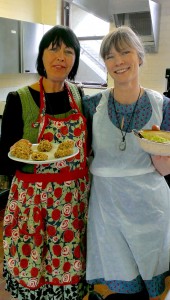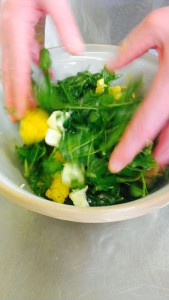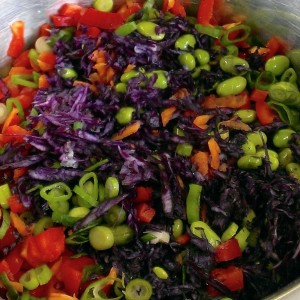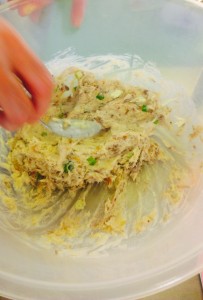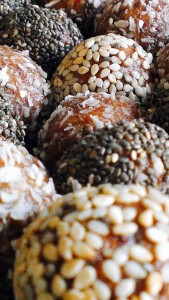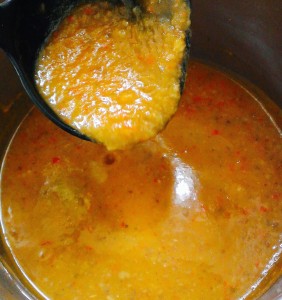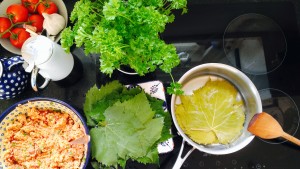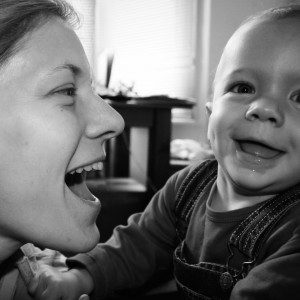As described in my previous post, I was keen to apply my clinical knowledge working with new patients in America. Waiting for the wheels of bureaucracy to grind into place and grant me a licence was frustrating, so to prevent myself ossifying I contacted a former acquaintance, Dr. James Gordon, founder of the The Center for Mind Body Medicine (CMBM), to see if he needed any volunteers.
I first met James in 2004 during an earlier stint in DC as a newlywed with my husband, a journalist who was based here. Unable to get a work visa I dabbled in various pursuits including enrolling in the Acting Conservatory at the wonderful Studio Theatre to pursue a long held passion of theatre acting. But I also spent time keeping up to date on areas of interest, one of which was the brain.
In the years since I studied neuroscience in Edinburgh, my interest had not waned. The science had moved on tremendously, and initiatives such as the Decade of the Brain meant research had proliferated. However, in keeping up with the major breakthroughs and developments and reading some of the media reports on this research, it sometimes seemed science was being used to rationalise treatments with insufficient evidence for safety or efficacy.
Even more troubling were the often hostile reactions towards scientists, with equally rigorous training as those conducting the research, who raised concerns. Blithe dismissals, ad hominem attacks or convoluted language crafted to bamboozle any lay person hoping to understand the controversies, were the weapons of choice. An unwillingness to listen to critical peers is worrying in any academic pursuit, but especially in the sciences, which I’d learned from studying Karl Popper, depended in large part on allowing your conjectures to be refuted!
At the same time journalists with little interest in their subject matter, or simply lacking sufficient grounding in science, were sometimes content to publish the prevailing wisdom with little intellectual curiosity. This is particularly troubling because although scientists have the time, motivation and collegial support to delve deeper, the public rarely do, relying for the most part on accurate media reports. Debates in science are often far more nuanced and multi-faceted than can be easily represented in an article restricted by word counts, but when it comes to understanding an issue, especially if it’s controversial and can be used to further a political or ideological agenda, this stuff matters.
Spotting articles of this sort comes not only from caring deeply about an issue, but in part from being married to a journalist. I met my husband while we were both working in the Balkans, and considered him to be one of the most trustworthy and reliable reporters in the profession. It also comes from working with skilled colleagues and mentors in the media departments of the United Nations Protection Forces in Zagreb, Croatia, and the Office of the High Representative (OHR) in Sarajevo, Bosnia and Herzegovina. Learning to differentiate between propaganda, half-truths and politically expedient articles, as well as lazy or unprofessional journalism in general, is par for the course working in a post-war media landscape.
It was with this mindset that James and I sat on his porch in 2004 discussing the latest media reports and research on the brain, as well as the direction mental health care was going in general. We also talked about nutrition and mental health and I was inspired by his breadth of interests, energy and passion. He was then, as now, busy training medical doctors and other health professionals in evidence-based techniques that address the root causes of trauma. The CMBM has been running programs since 1991, and has helped medical professionals both nationwide and internationally better support their communities in the aftermath of trauma.
As a Harvard trained psychiatrist, James’ approach is naturally science led. Like any seasoned practitioner he is also informed by the observation of his patients, as well as his own personal experiences. He takes seriously the guiding maxim of medicine and founding principle of bioethics: First Do No Harm.

Taking calculated risks in medicine is not unusual, indeed it can often be a matter of life or death. We could quibble all day about what constitutes harm, or doctors’ ethical promises but it wouldn’t detract from the fact that too often the ‘no harm’ principle is ignored to the serious detriment of an individual’s health or society’s wellbeing. In a territory as complex, fragile and unknown as the brain, where side effects can change who you are, how you perceive the world and how you treat others, it seems even more important to exercise wise, cautious, judgement.
James and I had been in touch sporadically throughout the years. In 2014 I contacted him with a view to setting up a programme to support trauma recovery in Vukovar, Croatia – a city torn apart following the brutal war. But the costs in time and finances, as well as the ongoing volatility at that time, made it unfeasible to begin anything that would be usefully sustainable in the long term.
By the time I contacted him again in 2017 I had become increasingly frustrated with the way mental health was being discussed in the media. The pathologising of certain mental states that might represent a normal response to an abnormal situation didn’t make sense to me. My patients’ experiences of trauma, as well as my own, fired a curiosity to better understand the underlying mechanisms. So when, after catching up over a cup of tea, James asked how I felt about helping him carry out some research on his new book, I jumped at the chance to become one of his more senior ‘interns’.
A serious flaw in the understanding of many holistic healthcare approaches has been the belief that there is no science to back it up. This may have been the case 20 – 30 years ago when it was hard to fund studies, but as evidence accumulates justification for further research gets stronger. My research was aimed at finding evidence for therapies previously seen as being on the fringes of neuroscience:- meditation, EMDR (eye movement desensitization treatment), nutrition, bio-feedback (neurofeedback), virtual reality and hypnosis.
The subtle but powerful effects of such therapies, as well as theories for their mechanism of action, have been brought to light with the help of sophisticated non-invasive but sensitive imaging techniques. Their combined use with emergent disciplines such as epigenetics, systems biology and nutrigenomics have helped clarify our understanding of the structural and biochemical changes that take place in the brain in response to its psychological, chemical and nutritional environment.
One area of focus in my research was looking at the neural pathways of implicit and explicit memory and evidence for trauma related epigenetic changes in their structure, as well as evidence of any changes to these areas corresponding with a particular therapy (for example, meditation). Another area we looked at was the effect of trauma on mirror neurons. These neurons are crucial for empathy and helping us to form normal social relationships.
The work was interesting and brought me up to date with the very latest in the field of neuroscience. A lot of the validating research we found (now already 3 years old) was too detailed and complex for inclusion in a practical self-help book, but would be worth exploring in a future blog.
Overall, the work was hugely interesting. It was inspiring to see how many scientists are out there seeking evidence for those safer yet still effective therapies that maintain respect for the fragility, sensitivity and complexities of our brains. Techniques once seen as hippy-dippy are finally being studied with serious intent. I’m sure that Mr. Popper would also be pleased to see science being used a self-correcting tool for discovery, rather than an excuse on which to hang old and tired hypotheses.
Transformation: Discover Wholeness and Healing after Trauma by James S. Gordon MD is published by Harper One in September 2019 and available at most bookshops, as well as public lending libraries in DC and Fairfax.


